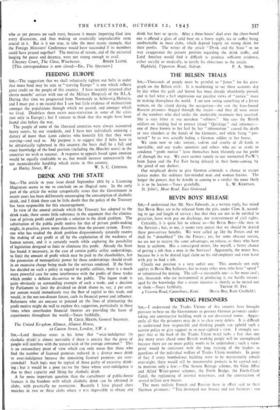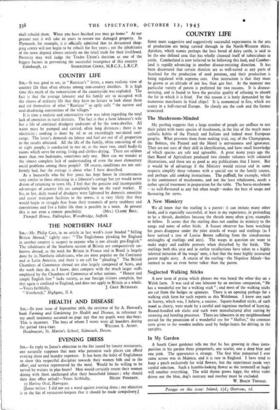WORKING PRISONERS
SIR,—I understand the Trades Unions of this country have brought pressure to bear on the Government to prevent German prisoners under- taking any constructive building work in our devastated towns. Appar- ently all that the prisoners may do is to clear away debris. It is difficult to understand how responsible and thinking people can uphold such a narrow policy or give support to so near-sighted a view. I strongly sus- pect that at the back of the Trades Union mind lurks a fear that one day many years ahead some British working people will be unemployed because there are no more public works to be undertaken ; such a view- point would be consistent with the long training of the leaders as guardians of the individual welfare of Trades Union members. In point of fact if every bombed-out building were to be mysteriously rebuilt over-night, there would still be innumerable projects to be carried out ; to mention only a few : —The Severn Barrage scheme, the Glen Affric and Allied Water-power schemes, the Forth Bridge, the Forth-Clyde Canal, the replanning of internal waterways, and the construction of several million new houses.
The more realistic French and Russian have in effect said to their German prisoners: " You destroyed our houses and our factories you shall rebuild them. When you have finished you may go home." At our present rate it will take 20 years to restore our damaged property. In Plymouth, for example, it is officially admitted that its devastated shop- ping centre will not begin to be rebuilt for five years ; yet the inhabitants of the town depend almost entirely on the retail trade for their livelihood. Posterity may well judge the Trades Union's decision as one of the biggest factors in preventing the successful resurgence of this country
Edinburgh, 12. SHAKESPEAR COOKE, M.R.C.S., L.R.C.P.



























 Previous page
Previous page